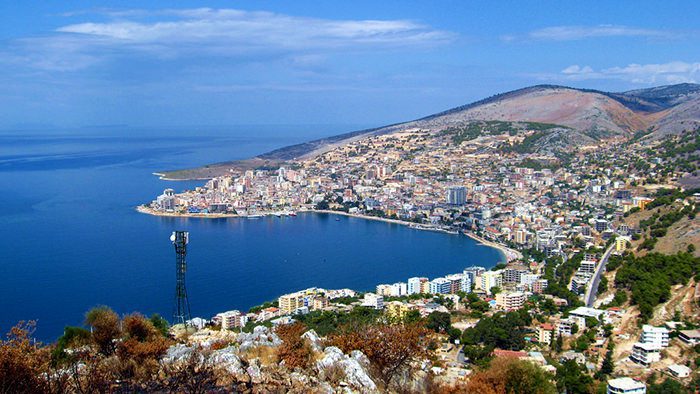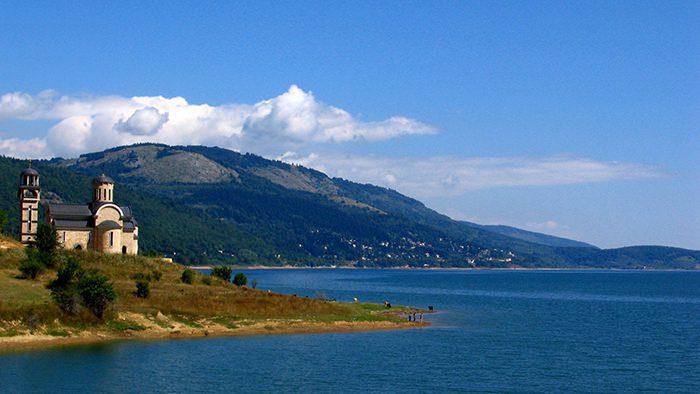
The term Balkans defines not only the region and the countries that make up a geographical region, but also the language family that these countries are a part of. The balkan languages are as different as the Balkan countries themselves: Albania, Bosnia and Herzegovina Bulgaria, Macedonia, Montenegro, Romania, Serbia, a part of Greece and a small region around Istanbul, known as “European Turkey.” Some also believe that Croatia should be included in this enumeration.
Most Europeans speak languages which are members of the Indo-European language family. However, there are certain branches, such as the Germanic branch, that have no representation currently in the Balkans. The balkan language people speak mostly Romance, Albanian, Greek and many Slavic branches. For example, the Romanians speak a romance languages related to Italian, Spanish and French, while the Slavic language people of Balkans, Serbs, Croats, Bulgarians and Macedonians, speak languages related to Russian and Polish. Even if you just started learning Slovak online, as an example of a Slavic language, chances are that you would understand a lot of what’s been said in Slavic languages of the Balkans. The Greek and Albanian languages comprise members of the Indo-European family too.
However, there are some balkan languages, such as the Turkish, Hungarian and Romany language, which are considered to be non-Indo-European languages. The multilingual contact on much of this territory gave rise to the Balkan Sprachbund (“Balkan Linguistic League”).
This linguistic phenomenon, known as the Balkan Linguistic League, highlights the shared features and mutual influences among languages within the region, marking the Balkans as a unique and dynamic linguistic space where diverse linguistic traditions converge and interact.
WATCH VIDEO: Basics of the Turkish Language
Here is a brief list of dialects and languages of the Balkans:

Albanian – a Indo-European language not too related with the other European languages; it is the only spoken Illyrian language in the world and includes two dialects; currently the Albanian speak the Tosk dialect, while until the World War II the literary language of Albania was Gheg.

Bulgarian – a Slavic languages, related to Serbo-Croatian; it uses a Cyrillic alphabet, just like Serbian.
WATCH VIDEO: Basics of the Bulgarian Language.

Greek – While just a part of Greece is considered by some scholars as part of the Balkan peninsula (mostly the northern Greece), it’s interesting to note that Greek, an official language, is a member of the Indo-European family, native to the southern Balkans; it continues to use the modern Greek alphabet.

Romanian – a Romance language, which means it is based on Latin; it is similar to the modern Italian language; this language is considered to be a miracle of history, because Dacia, the ancestor land of Romania, was Romanized for less than 200 years, and yet the Dacians learned Latin so quickly that the Daco-Romanic dialect was formed; the final touch of the Romanian language was given by Slavonic influences; Istro-Romanian is a very interesting dialect, a mixture of Romanian, Slavonic, Italian and German vocabulary, currently languages spoken in the Peninsula of Istria; we also need to mention the Aromanian language, called Vlach or Macedo-Romanian, which resemble the Romanian language, but has also Albanian, Serbian and Greek influences. Below I have included a video of Moldovan which is basically a dialect of Romanian.
WATCH VIDEO: Learning the Moldovan Language

Serbo-Croatian Dialects – the Serbians speak Serbo-Croatian, a Slavic dialect spoken also by the Croats; however, while the Croats use a Latin alphabet, the Serbs use a Cyrillic (Greek-derived) alphabet very similar to the Russian alphabet; there are three dialects included in this language family: the Shtokavian (spoken by most Serbs, Croats, Bosnians and Montenegrins), Chakavian (spoken mostly in the Adriatic islands and along the coast) and Kajkavian (spoken in north-western Croatia and a dialect of Slovenian too).
WATCH VIDEO: Learning the basics of the Serbian Language

Macedonian – since Macedonia is a relatively new country on the Balkan map and because its territories have been claimed by both Bulgaria and Serbia, it is pretty hard to tell if Macedonian is a language per se or a dialect; however, we can tell for sure that it uses a south slavic languages and is spoken in Macedonia and in some communities of Albania, Romania and Serbia; it uses the Cyrillic alphabet.
WATCH VIDEO: Introduction to Macedonian Language
Speak any of these balkan language? We would like to hear from you!
Counter
101 Countries • 1432 Cities
octavian88 says:
In Macedonia live a minority called Aromanians. Aromanians dwell Turcia, Bulgaria, Grecia, Macedonia, Muntenegro, Albania, Kosovo. They and Romanians are the Romance speaking heirs of Roman Empire. Infortunately the Aromanians have no country.
Robel says:
Hey Mandy, thanks for poiintng that out!! I’ll be on it. Yes, Macedonia has a very interesting history and so many things can be discovered there Skopje is super atmospheric too and sports tons of festivals in summer. Great!!!